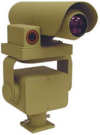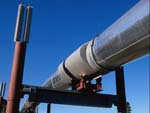 The Directorate of Defense Trade Controls (“DDTC”) issued today a final rule amending section 127.12 of the International Traffic in Arms Regulations (“ITAR”) which governs voluntary disclosures of violations of the ITAR by exporters of defense articles and defense services. Four significant revisions were made.
The Directorate of Defense Trade Controls (“DDTC”) issued today a final rule amending section 127.12 of the International Traffic in Arms Regulations (“ITAR”) which governs voluntary disclosures of violations of the ITAR by exporters of defense articles and defense services. Four significant revisions were made.
The new rules require additional specification of details and identifying information in a voluntary disclosure. Second, the new rules state that the voluntary disclosure must link new compliance initiatives in the exporter’s compliance program to the specific violations uncovered. Third, the DDTC may require, in the case of a “systematic pattern of violations,” a signature of “senior officer” on the voluntary disclosure
By far the most significant change effected by the new rule is a time limit between the initial and final disclosures. Under the new rule, the exporter who makes a preliminary disclosure must now file its final disclosure with DDTC within 60 days of the preliminary disclosure. Prior to this change, there was no time limit for the final disclosure, although DDTC staff encouraged the final disclosure to be made reasonably promptly. The new rule provides that the exporter may request an extension of the 60-day period if additional time is needed, although DDTC is under no obligation to grant the extension. Failure to file the final disclosure within the requisite time period may be used as DDTC as a reason to disregard the voluntary disclosure as a mitigating factor in assessing the penalty.
Of course, more than a few eyebrows have been raised in the export community that the notoriously slow agency should be imposing stricter “hurry up an wait” deadlines on exporters. Voluntary disclosures can take more than a year before the agency responds. Amendments to technical assistance agreements can also take a year or more, and commodity jurisdiction requests can fall into a black hole and remain unadjudicated for years. Worse certain agency employees have suggested that if Congress imposes time limits on DDTC for the processing of export licenses and other agency actions, the agency will simply respond by bouncing export license applications for minor technicalities. In view of this, one would hope that DDTC won’t be stingy in granting exporter requests for additional time to complete their internal investigations of voluntary disclosures that have been preliminarily disclosed.

 Posted by
Posted by  Category:
Category: 

 In an
In an  According to a
According to a  On December 3, Philip Cheng from Cupertino, California, was
On December 3, Philip Cheng from Cupertino, California, was  There has been some discussion here at Export Law Blog about the proper role of freight forwarding companies in export enforcement. If a customer of a freight forwarder proffers a package addressed to Iran without an OFAC license, should the freight forwarder decline the package and tell the customer that shipments to Iran must be licensed? Or should the freight forwarder accept the package and call the authorities? The recent
There has been some discussion here at Export Law Blog about the proper role of freight forwarding companies in export enforcement. If a customer of a freight forwarder proffers a package addressed to Iran without an OFAC license, should the freight forwarder decline the package and tell the customer that shipments to Iran must be licensed? Or should the freight forwarder accept the package and call the authorities? The recent 

